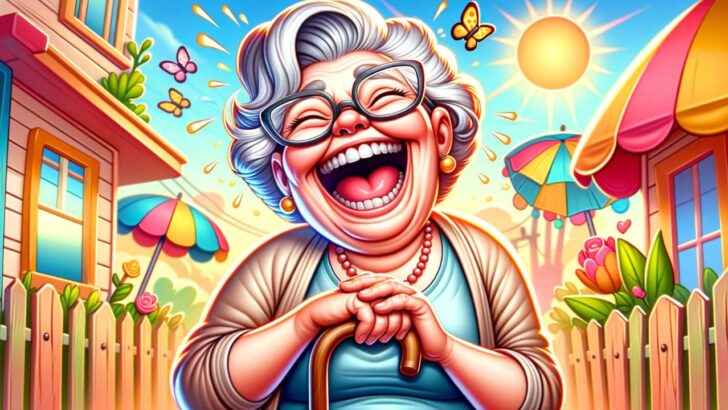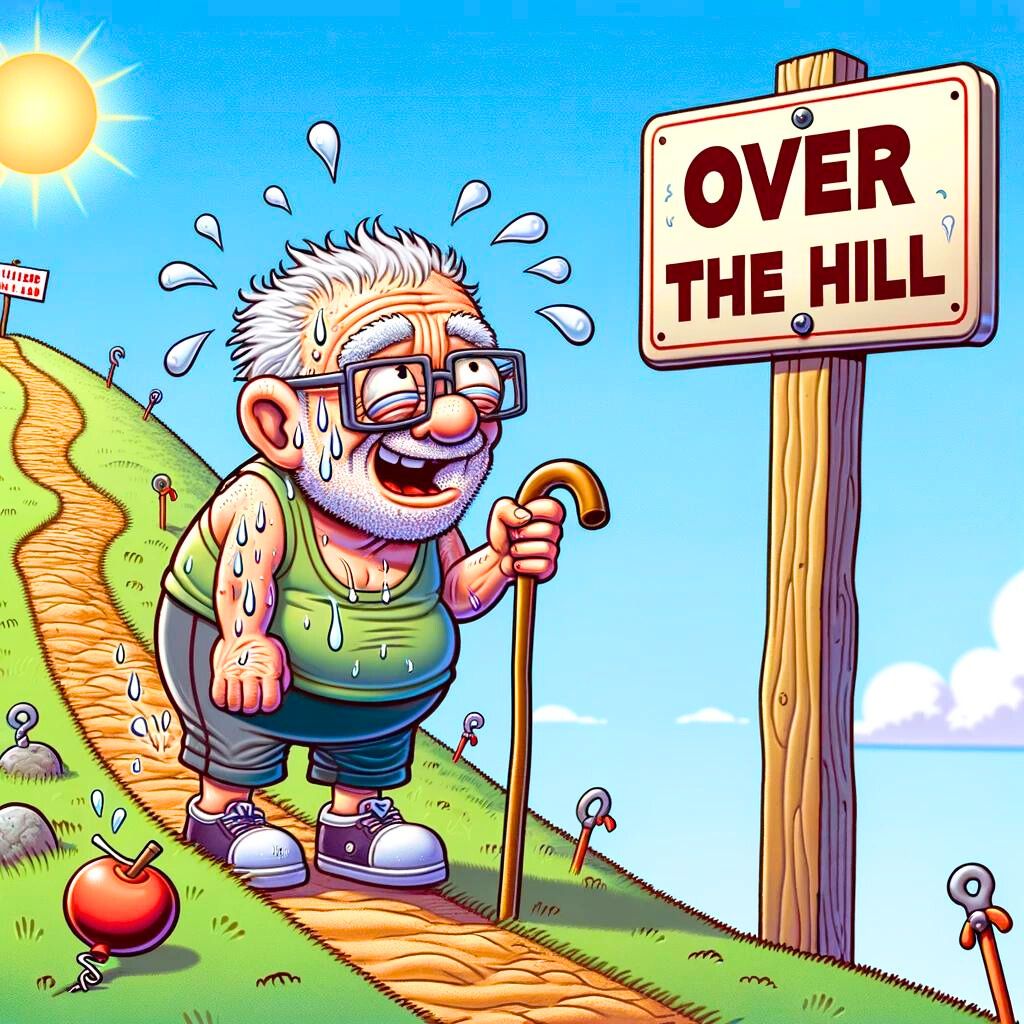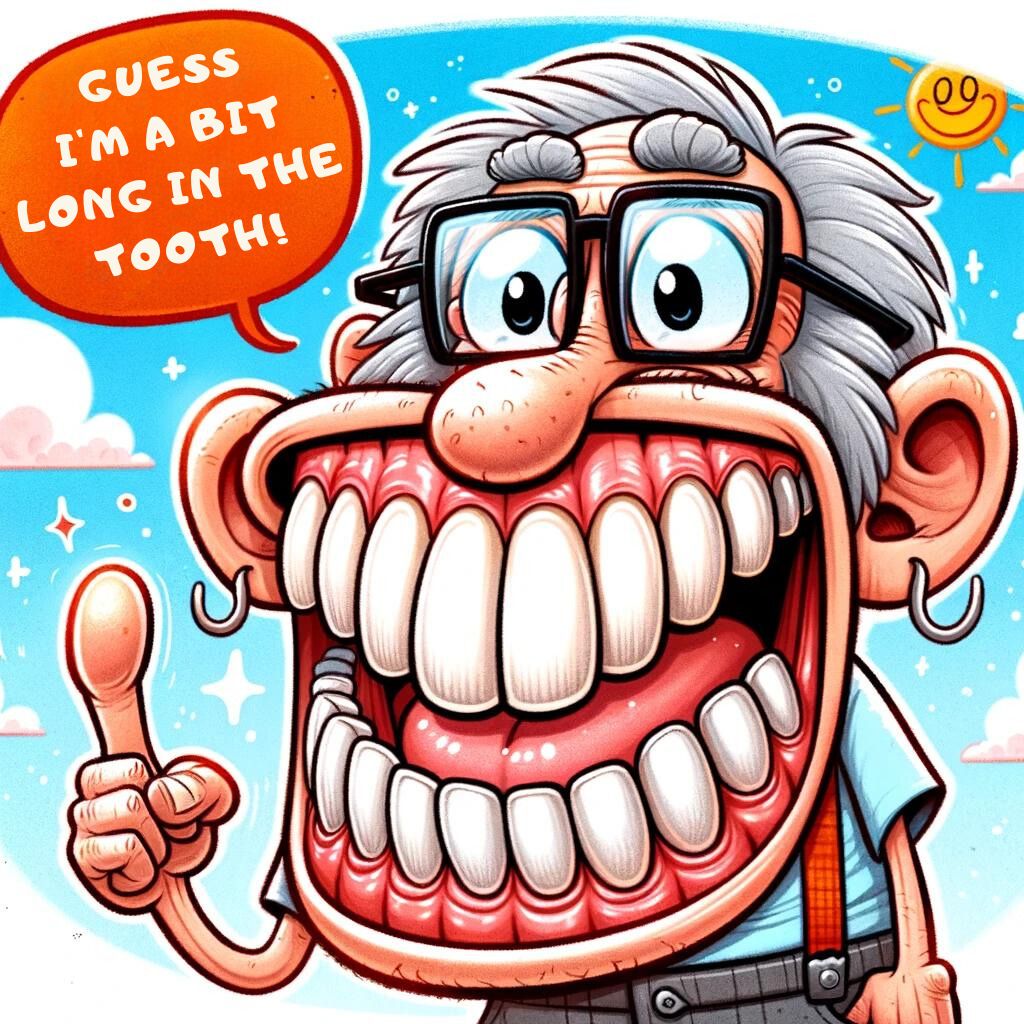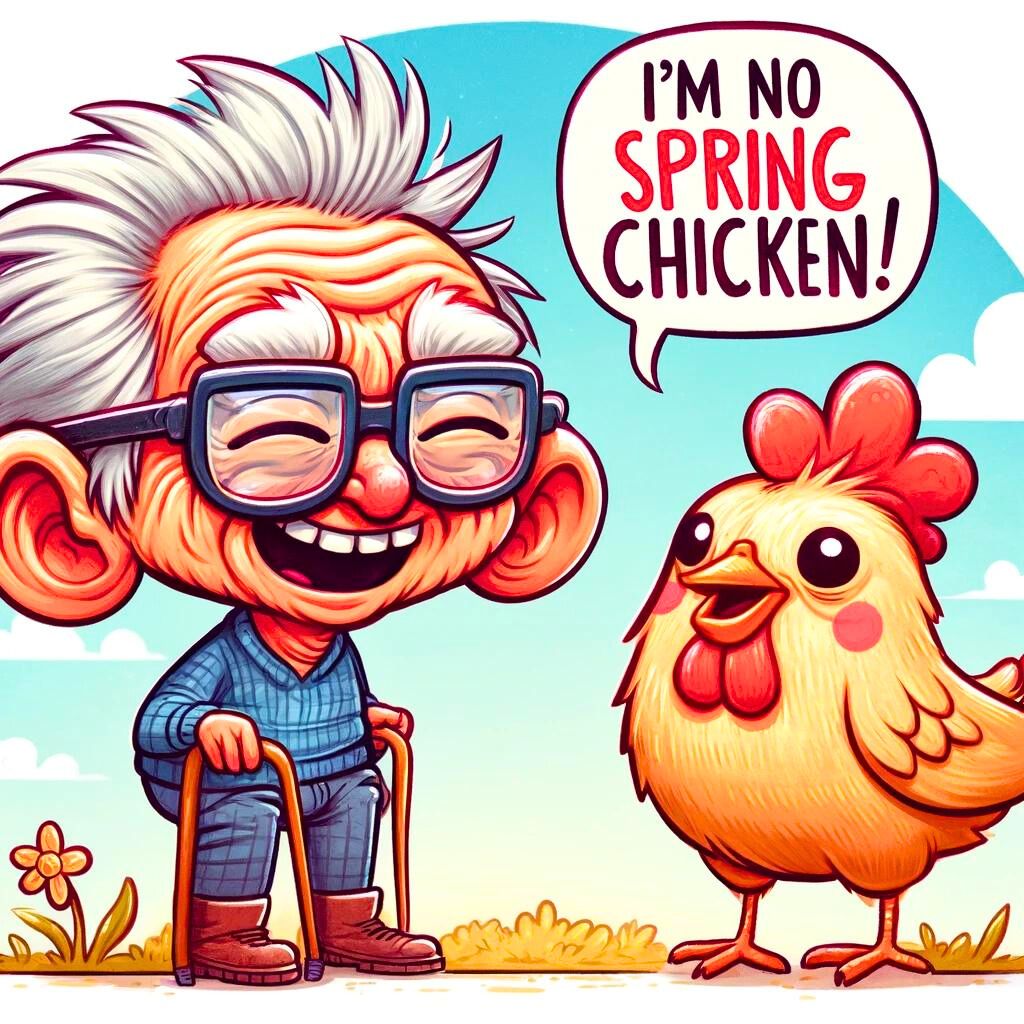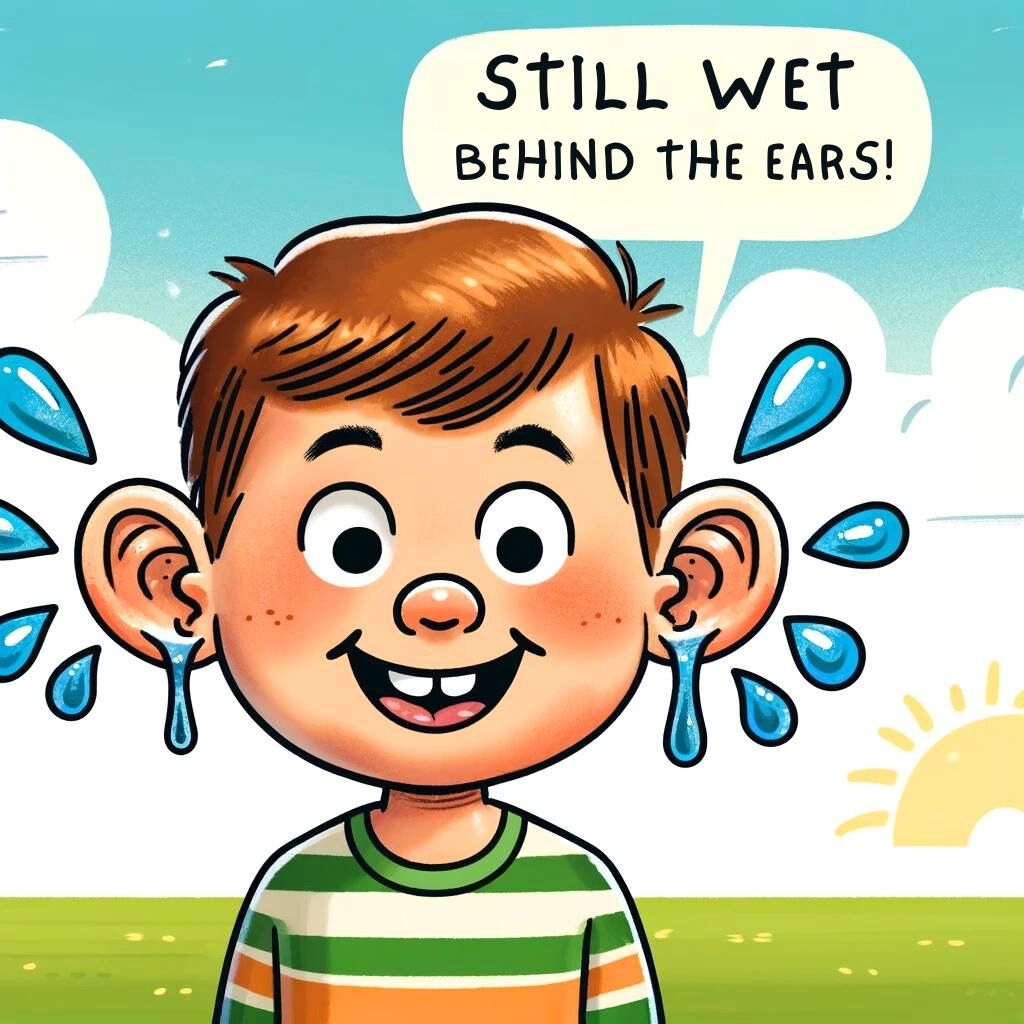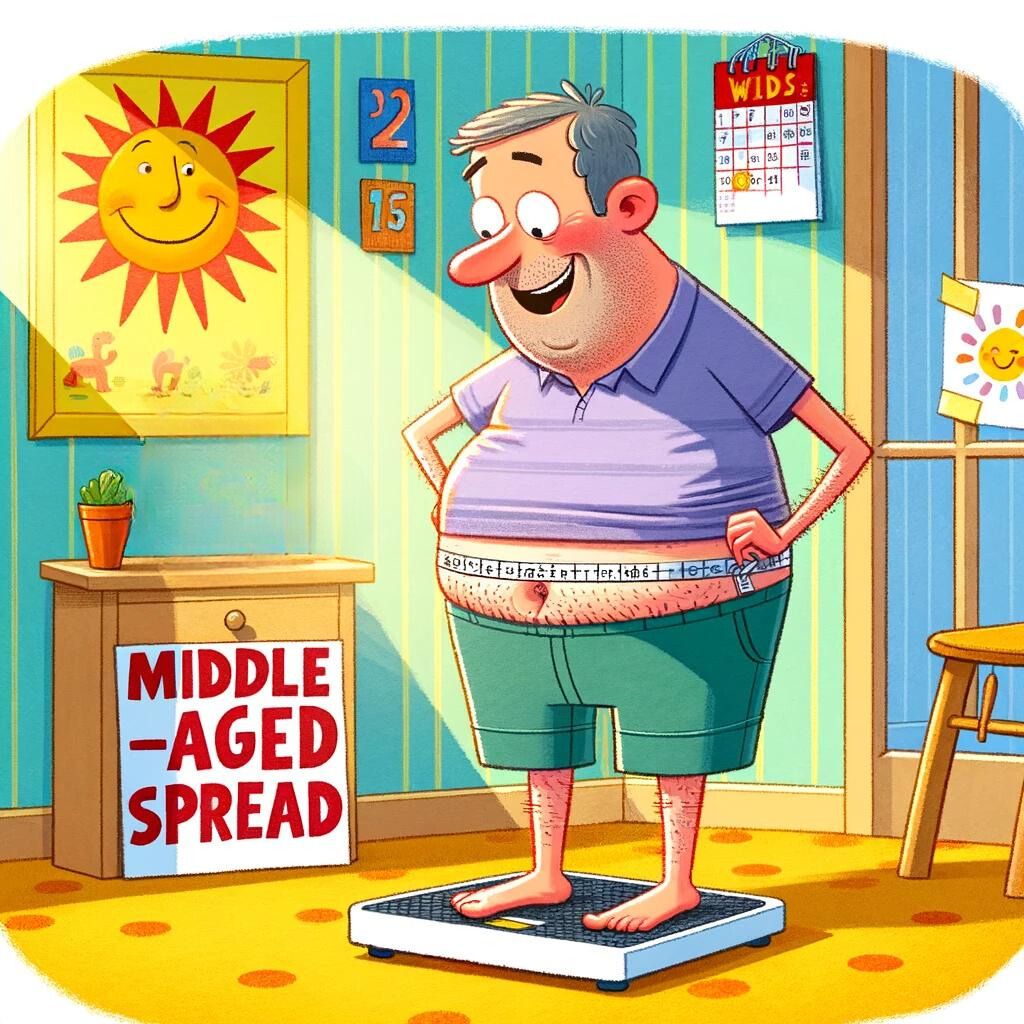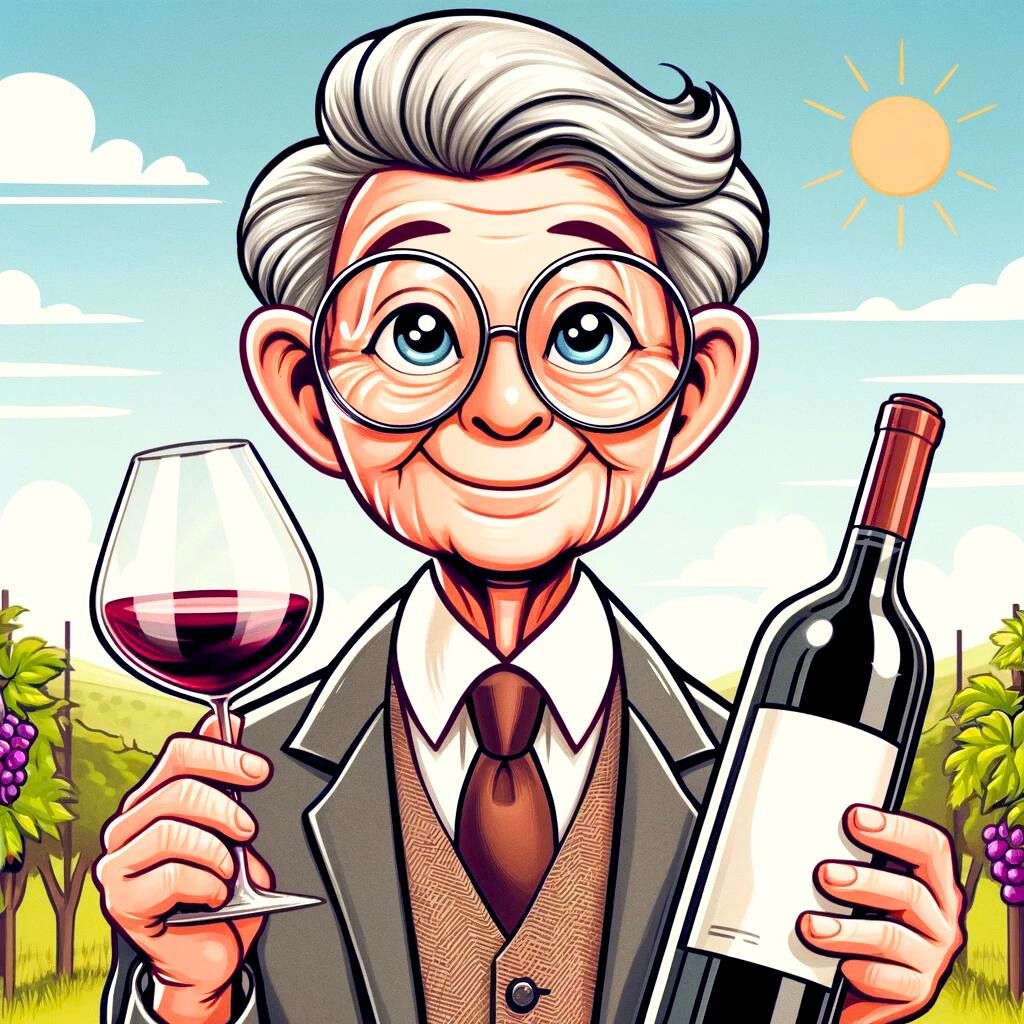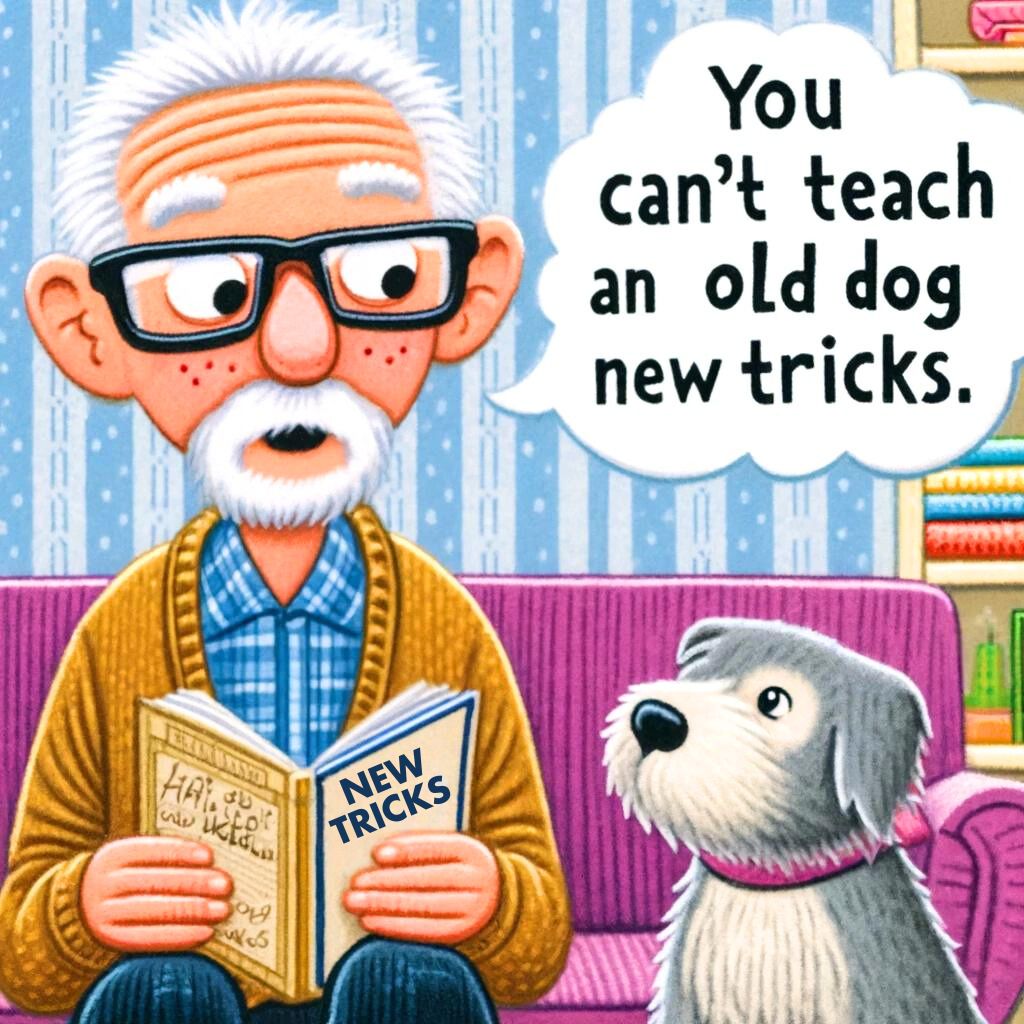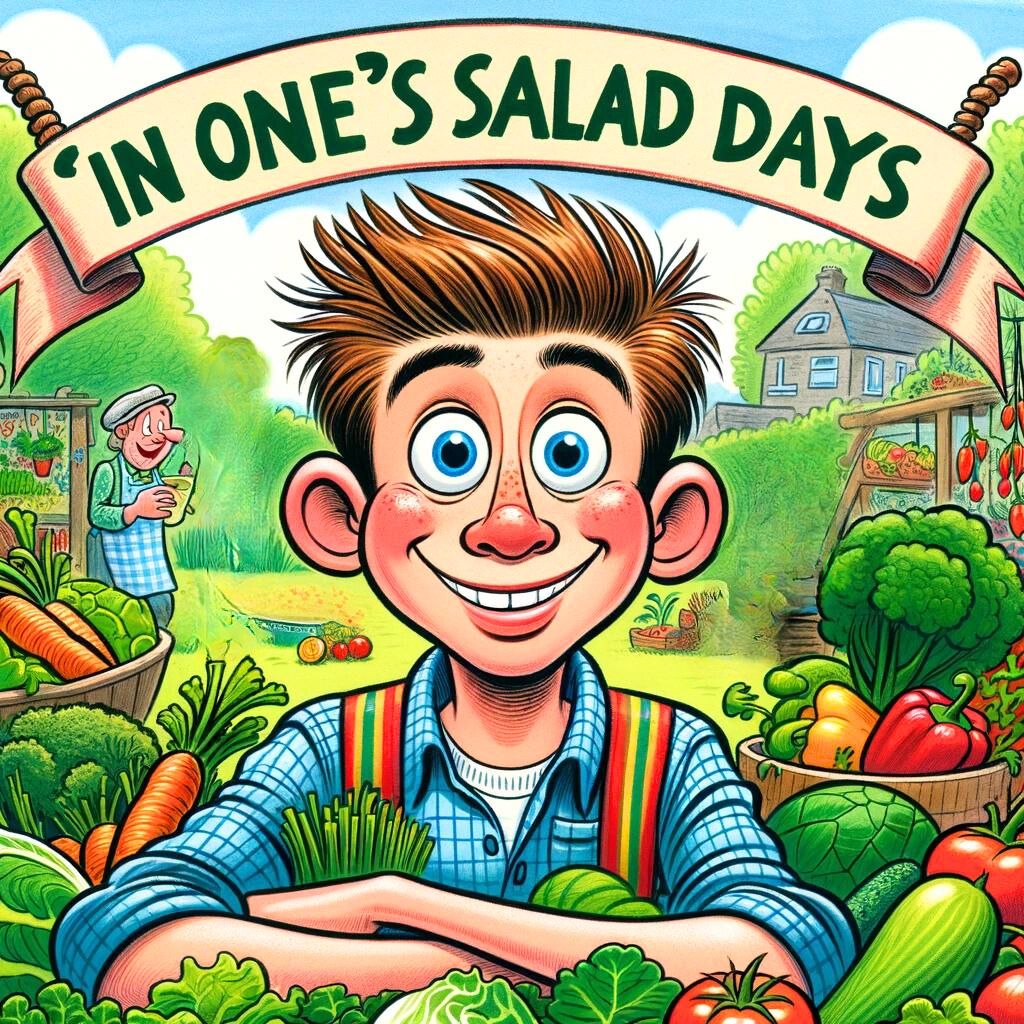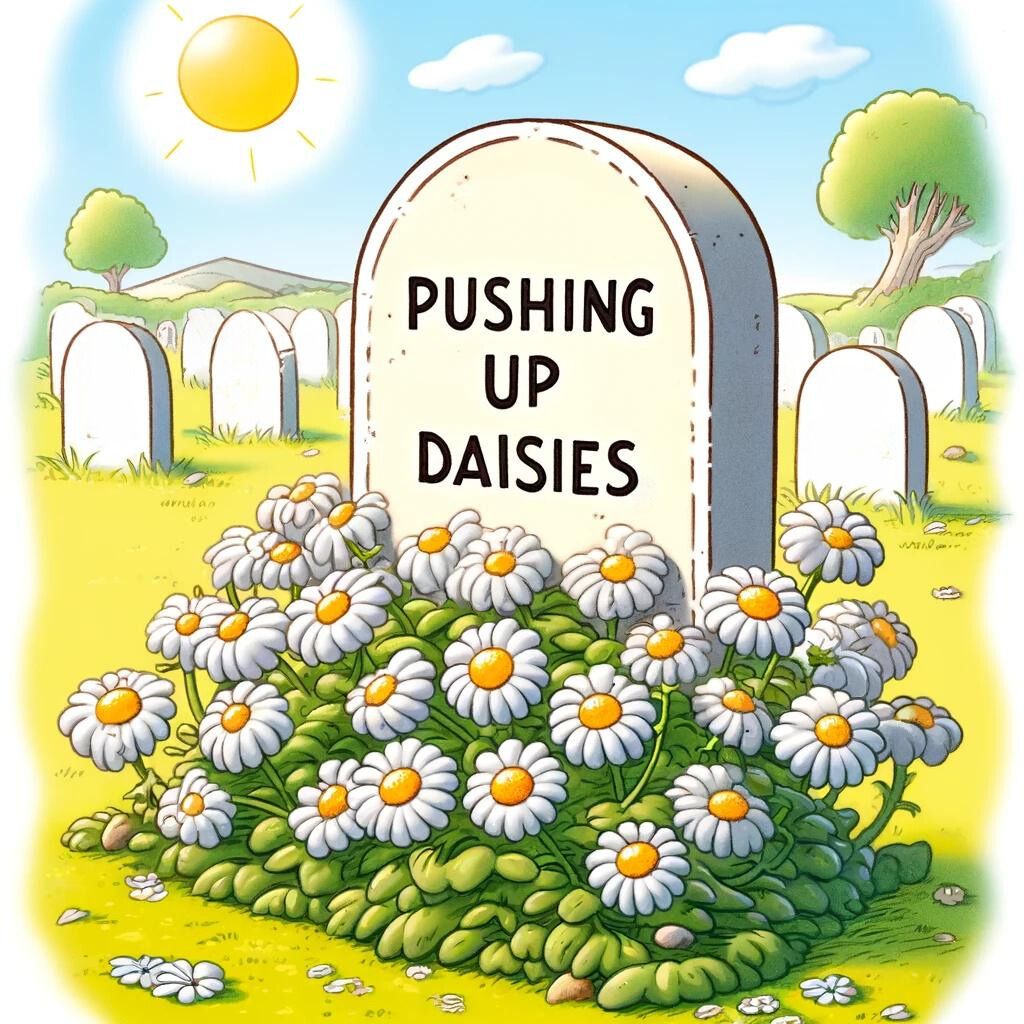Aging isn’t just about getting older; it’s a journey full of colorful expressions that capture every stage of life.
From being “knee-high to a grasshopper” to enjoying your “golden years,” idioms bring humor and wisdom to our everyday language.
Join us as we explore some of the most amusing and insightful idioms about the many phases of life.
1. Knee-high to a grasshopper
The idiom “Knee-high to a grasshopper” describes someone who is very young and small, often reminiscing about their childhood. It suggests a time when the person was much shorter and less mature.
This phrase is often used in a nostalgic or affectionate context, highlighting the significant growth and changes a person has undergone since they were little.
The origin of this idiom lies in the imagery of a grasshopper, which is a small insect, and the idea that a young child would be about the same height as the grasshopper’s knees.
Using this idiom in conversation adds a whimsical and endearing touch, evoking memories of early childhood and the passage of time.
It captures the essence of growth and development, reinforcing the idea of how far someone has come from their early, tiny beginnings.
Example 1: Grandpa used to tell stories about when I was knee-high to a grasshopper, always getting into mischief around the house.
Example 2: Seeing the old photo album, Jane smiled at the pictures of her when she was knee-high to a grasshopper, playing in the garden.
2. Over the hill
The idiom “Over the hill” is often used to describe someone who is past their prime, typically in terms of age. It’s like saying someone is on the downward slope of life, suggesting they’ve already experienced the peak of their vitality or success.
This phrase is commonly used in a light-hearted or humorous context, often during birthday celebrations, to poke fun at the idea of aging. It implies that someone has reached a point where they might be considered old by societal standards, but it’s usually meant in good fun.
The origins of this idiom are straightforward. It imagines life as a hill, where the climb up represents youth and energy, and the descent represents getting older and perhaps slowing down.
Example 1: When Jim turned 50, his friends threw him an “Over the hill” party, complete with black balloons and jokes about senior discounts.
Example 2: Sarah laughed as she told her colleagues, “I might be over the hill, but I’ve still got plenty of energy for our annual hiking trip!”
3. Long in the tooth
The idiom “Long in the tooth” describes someone who is old or aging. It implies that the person has been around for quite some time and might be showing signs of wear or experience that come with age.
This phrase is often used humorously or affectionately to comment on someone’s age, without being overly harsh or critical. It’s a playful way to acknowledge that someone has accumulated wisdom and experience over the years.
The origin of this idiom comes from the practice of estimating a horse’s age by the length of its teeth. As horses age, their gums recede, making their teeth appear longer.
Using this idiom in conversation can add a quaint or whimsical touch, invoking a sense of old-fashioned charm while discussing age.
It conveys respect for the experiences and knowledge that come with age, while also acknowledging the inevitable passage of time.
Example 1: Grandpa chuckled when he heard his grandson say, “You’re getting a bit long in the tooth, aren’t you, Grandpa?”
Example 2: Despite being long in the tooth, Mrs. Jenkins could still run circles around her younger colleagues at the office.
4. No spring chicken
The idiom “no spring chicken” describes someone who is no longer young. It suggests that a person has passed the youthful stage of life and is now older and more experienced.
This expression is often used in a light-hearted or humorous manner, indicating that while someone may still be active and capable, they are not as young as they once were.
The origin of this idiom comes from the practice of farmers selling chickens. Young chickens, or “spring chickens,” were more desirable and sold at a higher price. Older chickens were less valuable, hence the saying.
Using this idiom can add a playful element to discussions about age, highlighting the contrast between youth and experience without being overly serious.
It acknowledges the passage of time in a relatable way and often brings a smile, reinforcing that aging is a natural part of life.
Example 1: When Clara tried to join her kids in a game of tag, she laughed and said, “I’m no spring chicken, but I’ll give it a go!”
Example 2: During a job interview, Mark mentioned, “I may be no spring chicken, but I bring a wealth of experience to the table.”
5. Wet behind the ears
The idiom “Wet behind the ears” describes a young and inexperienced person. It implies that the person is still new to a particular field or situation and has a lot to learn.
This phrase is often used in a slightly teasing or affectionate manner, highlighting someone’s youth and the inexperience that comes with it.
The origin of this idiom comes from the idea that a newborn animal, especially a calf, is still wet behind the ears because it hasn’t completely dried off after birth, symbolizing its newness to the world.
Using this idiom in conversation emphasizes a person’s novice status and often encourages them to gain more experience.
It captures the idea of fresh beginnings and the journey of learning and growing, reinforcing the natural process of acquiring wisdom over time.
Example 1: The rookie firefighter was eager to prove himself, though the veterans reminded him he was still wet behind the ears.
Example 2: Fresh out of college, Lisa was wet behind the ears, but her enthusiasm and willingness to learn made her a valuable new hire.
6. Golden years
The idiom “Golden years” refers to the period of life after retirement when individuals can enjoy the fruits of their labor and live a more leisurely life. It suggests a time of comfort, relaxation, and enjoyment, often free from the stresses of work.
This phrase is commonly used to describe the latter part of one’s life, emphasizing the potential for fulfillment and happiness during retirement.
The origin of this idiom is tied to the notion of “gold” representing something precious and valuable, indicating that these years are a treasured and special time.
Using this idiom in conversation highlights the positive aspects of aging and retirement, focusing on the opportunities for enjoyment and relaxation.
It captures the idea of a rewarding and peaceful phase of life, reinforcing the benefits and joys of growing older.
Example 1: After retiring from a long career, Robert looked forward to traveling and spending his golden years exploring new places.
Example 2: Emily and John planned to move to a seaside cottage to enjoy their golden years by the beach, relishing the calm and beauty of their surroundings.
7. Middle-aged spread
The idiom “Middle-aged spread” refers to the weight gain often occurring as people reach middle age. It usually describes the extra fat accumulating around the abdomen and waist.
This phrase is often used in a casual or humorous context to acknowledge the common physical changes that accompany aging, particularly due to a slowing metabolism and lifestyle changes.
The origin of this idiom lies in the observation that many people, as they age, tend to put on weight more easily than they did in their younger years.
Using this idiom in conversation can add a light-hearted touch to discussions about aging, recognizing the natural changes in body shape and weight that many experience.
It captures the idea of inevitable physical changes, reinforcing that gaining a bit of weight in middle age is a normal part of life.
Example 1: Dave joked about his middle-aged spread when he noticed his jeans were getting tighter around the waist.
Example 2: After years of desk work, Susan battled the middle-aged spread and decided to jog to stay fit.
8. In one’s twilight years
The idiom “In one’s twilight years” refers to the later stages of a person’s life, typically when they are elderly. It suggests a period of life near the end, often marked by retirement and reflection.
This phrase is usually used in a gentle and respectful manner to describe the aging process and the time when a person may slow down and enjoy a more relaxed pace of life.
The origin of this idiom comes from the metaphor of twilight, the time of day just before nightfall, symbolizing the final phase of life before its conclusion.
Using this idiom in conversation conveys a sense of calm and serenity, acknowledging the wisdom and experiences accumulated over a lifetime.
It captures the essence of a peaceful and reflective stage of life, reinforcing the dignity and grace of growing older.
Example 1: In his twilight years, Mr. Thompson enjoyed spending quiet evenings on his porch, reminiscing about the past.
Example 2: The couple moved to a quaint village to spend their twilight years surrounded by nature and tranquility.
9. (Aging) Like a fine wine
The idiom “Like a fine wine” describes someone or something that improves with age. It suggests that, just as wine develops more complex and desirable flavors over time, a person can become more appealing, skilled, or wise as they grow older.
This phrase is often used to compliment someone’s appearance, abilities, or character, highlighting the positive aspects of aging.
The origin of this idiom lies in the aging process of wine, where well-made wines become better and more valuable as they mature.
Using this idiom in conversation adds a sophisticated and flattering touch, emphasizing the beauty and refinement that can come with age.
It captures the idea of aging gracefully and becoming more distinguished over time, reinforcing the value of experience and maturity.
Example 1: Jessica has aged like a fine wine, becoming even more elegant and charming over the years.
Example 2: His storytelling skills, like a fine wine, have only improved with age, captivating audiences more than ever.
10. You can’t teach an old dog new tricks
The idiom “You can’t teach an old dog new tricks” means that it is difficult to change someone’s habits, behaviors, or ways of thinking, especially if they have been doing things a certain way for a long time. It suggests that older individuals may find it challenging to adapt to new methods or ideas.
This phrase is often used to acknowledge the difficulty of change, sometimes with a touch of resignation or humor.
This idiom originates from the idea that an older dog, having learned and practiced certain behaviors for years, will find it hard to learn new ones.
Using this idiom in conversation highlights the challenge of changing long-established habits, often serving as a gentle reminder of the resistance to change that can come with age.
It captures the essence of ingrained routines and the natural reluctance to alter them, reinforcing the notion that old habits die hard.
Example 1: When John struggled to learn the new software at work, he shrugged and said, “I guess you can’t teach an old dog new tricks.”
Example 2: Despite numerous attempts to get her father to use a smartphone, Emma realized, “You can’t teach an old dog new tricks; he’s just too set in his ways.”
11. Full of beans
The idiom “Full of beans” describes someone who is energetic, lively, and enthusiastic. It suggests that the person is full of vitality and ready to take on the world with a lot of excitement and vigor.
This phrase is often used in a positive and affectionate context to highlight someone’s spirited and dynamic nature, especially in children or young people.
The origin of this idiom is unclear, but it may be related to the high-energy content of beans as a food source, metaphorically filling someone with energy.
Using this idiom in conversation adds a colorful and cheerful note, emphasizing the person’s exuberance and zest for life.
It captures the essence of youthful energy and enthusiasm, reinforcing the idea of being spirited and lively.
Example 1: After their trip to the amusement park, the kids were full of beans, running around and sharing their excitement.
Example 2: Despite the long day, Emma was still full of beans, ready to dance the night away at the party.
12. In one’s salad days
The idiom “In one’s salad days” refers to a time in someone’s youth when they were inexperienced, carefree, and often idealistic. It suggests a period characterized by freshness and naivety, much like a salad is fresh and green.
This phrase is often used nostalgically to describe the early part of a person’s life when they were still learning and exploring the world with youthful enthusiasm.
The origin of this idiom comes from William Shakespeare’s play “Antony and Cleopatra,” where Cleopatra refers to her youthful indiscretions as her “salad days,” when she was “green in judgment.”
Using this idiom in conversation adds a poetic and reflective tone, emphasizing the youthful innocence and vibrancy of one’s earlier years.
It captures the essence of youthful exuberance and the learning experiences of early life, reinforcing the charm and growth that come with those times.
Example 1: During their college reunion, the friends reminisced about their salad days, recalling all the adventures and misadventures of their youth.
Example 2: In her memoir, the actress fondly recounted her salad days in Hollywood, full of dreams and unpolished talent.
13. Pushing up daisies
The idiom “Pushing up daisies” is a euphemistic and somewhat humorous way of saying that someone is dead and buried. It suggests that the person has passed away and their body is now in the ground, contributing to the growth of daisies and other plants.
This phrase is often used in a light-hearted or irreverent context, softening the harsh reality of death with a touch of whimsy.
This idiom likely originated from the idea that when a body is buried, plants, including daisies, can grow over the grave, metaphorically pushed up by the deceased.
Using this idiom in conversation can add a gentle or humorous tone to discussions about death, making the topic a bit easier to handle.
It poetically captures the cycle of life and death, reinforcing the idea that life continues in some form even after death.
Example 1: The old pirate, with a wink and a grin, told tales of his long-lost crewmates who were now pushing up daisies.
Example 2: After years of joking about living forever, Grandpa finally admitted he would someday be pushing up daisies, much to the amusement of his grandchildren.

Hey fellow Linguaholics! It’s me, Marcel. I am the proud owner of linguaholic.com. Languages have always been my passion and I have studied Linguistics, Computational Linguistics and Sinology at the University of Zurich. It is my utmost pleasure to share with all of you guys what I know about languages and linguistics in general.

